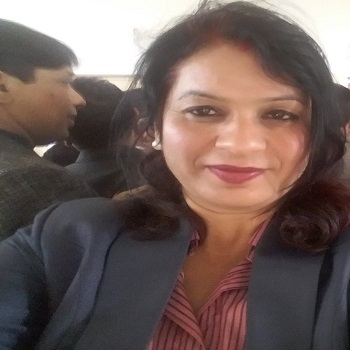Scientific Program

Shanti Kala Subedi
Tribhuban University, Nepal
Biography:
Dr. Subedi experienced energy crisis during her childhood in a rural village in Nepal. She witnessed how her parents and neighbors used to manage fuel wood for cooking and kerosene for lighting. She has been committed to contributing for clean energy development since that time. Dr. Subedi achieved her Bachelor’s degree in Civil Engineering and Masters Degree in Sociology from Tribhuban University, Nepal, and Masters Degree in Engineering from The Australian National University, Australia. She has been contributing to uplift the livelihood security of vulnerable and poor rural people in many remote districts in Nepal. While she was working in the rural communities in Nepal, she was very much encouraged when her significant contribution to the rural poor communities was rewarded frequently. She completed her PhD degree in Energy and Environment from Massey University, New Zealand, where she developed an appropriate biogas production technology, and recommended to governments for its adoptation to provide energy security to the rural poor households. Dr. Subedi is currently working as a Senior Lecturer and Unit Chief at Research and Innovation Unit, Himalaya College of Engineering, Tribhuban University, Nepal. Her main research area is Energy, Environment and Community Development. She is also a Managing Director at Krishnam Smart Engineering Solution Pvt. Ltd - which works for renewable energy development in Nepal.
Abstract
Biogas development is one of the government's priority programmes in Nepal (WECS, 2010; Bajgain and Shakya, 2005; Katuwal and Bohara, 2009; SNV, 2010). However, the replication of the technology is still slow (BSP-Nepal, 2015). Biogas production is lower than its full capacity (Rao and Baral, 2011) and cannot cover the energy demand of a typical household all year round, especially during winter (KC. Et al, 2011, SNV, 2010, Katuwal and Bohara, 2009). Hence, this study aimed to explore the potential solution to increase domestic biogas production and use so that its benefits for energy security and environmental emission reduction can be optimised. Both quantitative and qualitative research approach were applied. Surveys of biogas households in Nepal were conducted to collect household-level information. This research analysed the effect of co-digestion of dung with agricultural residues to increase biogas yield by using Volumetric Methane Prediction (VMP) model. The cost effectiveness of co-digestion technology is checked out by using financial analysis. The impacts of improved biogas production on energy cost, energy consumption, and associated greenhouse gas (GHG) emissions reduction were obtained by using Long-range Energy Alternative Planning (LEAP) system model. This study showed that co-digestion of dung with crop residues could improve biogas production up to 150% and would meet most of the household cooking energy demand throughout the year. Also, the total annual cost of energy after co-digestion is up to 37% cheaper than the existing biogas production, and even up to 45% cheaper than the energy cost of non-biogas households. An improved production can reduce average annual energy consumption by 46-57 gigajoules and GHG emissions, mainly from avoiding deforestation, by 16.7-19.3 tCO2e per household compared to a non-biogas household.
- Bioenergy
- Renewable & Sustainable Energy and Resources
- Biofuels and Biomass
- Advanced Materials for Energy Storage, Generation and Transmission
- Global Trends in Renewable Energy Commercialization and Investment
- Oil and Gas Processing
- Energy and Environment
- Petroleum Engineering and Natural Gas Recovery
- Biorefineries and Bioethanol
- Biomass Feed Stocks for Renewable Energy Generation

